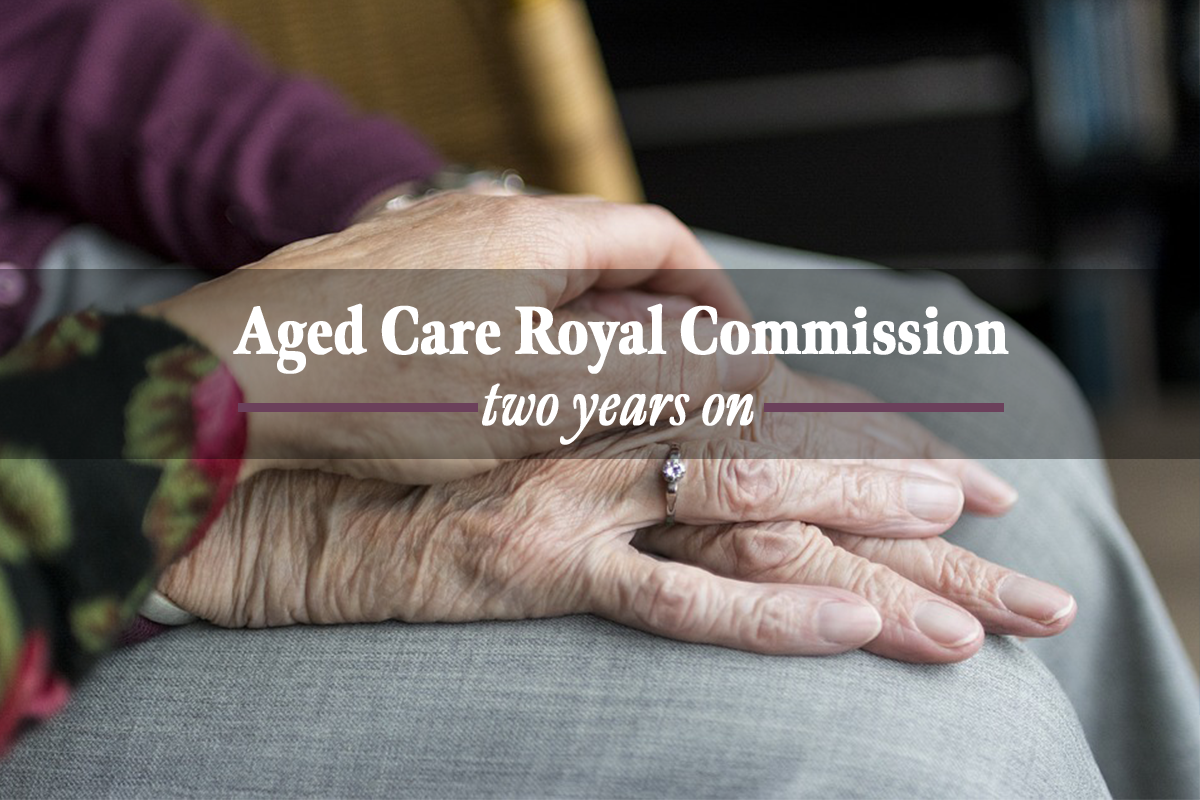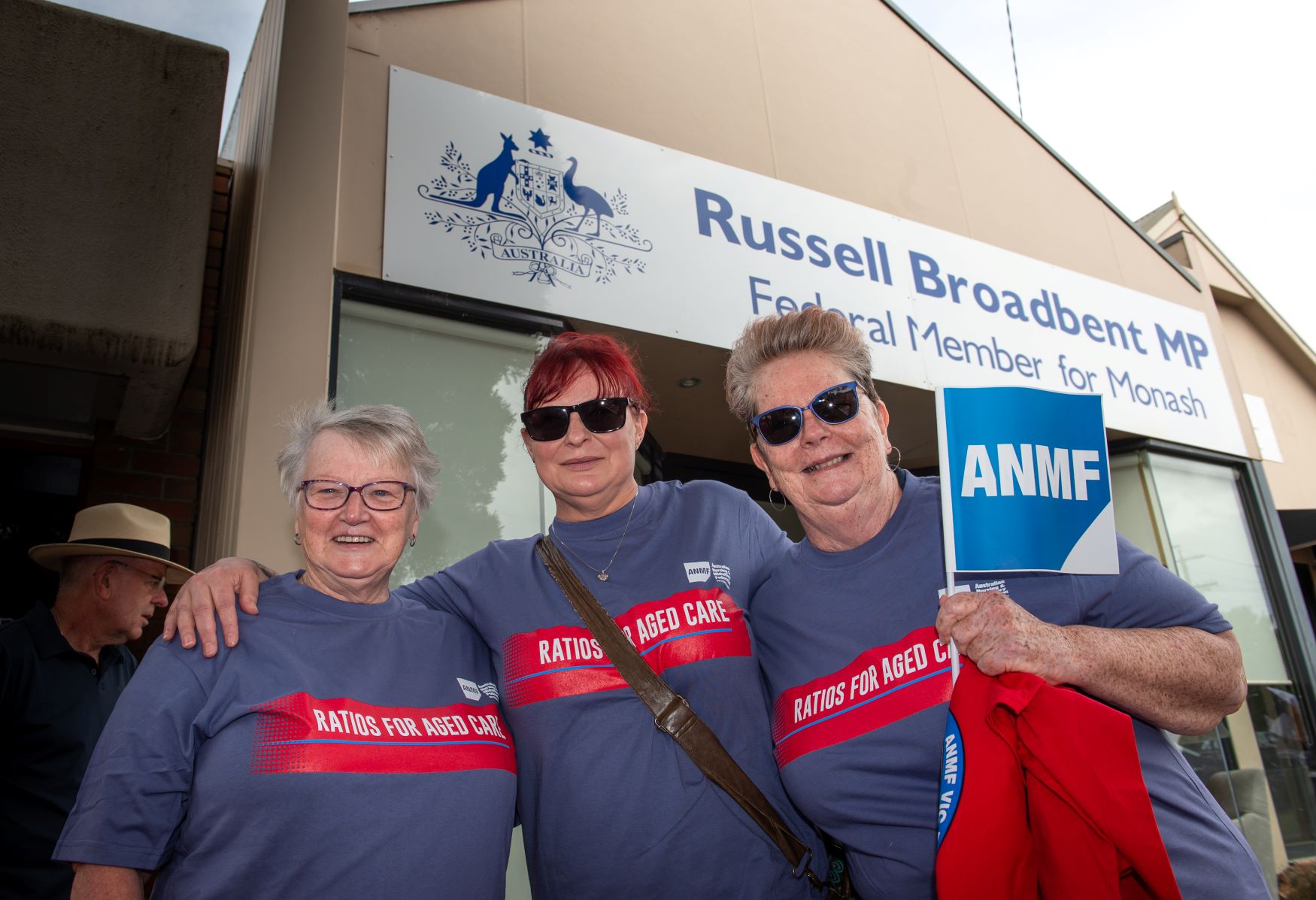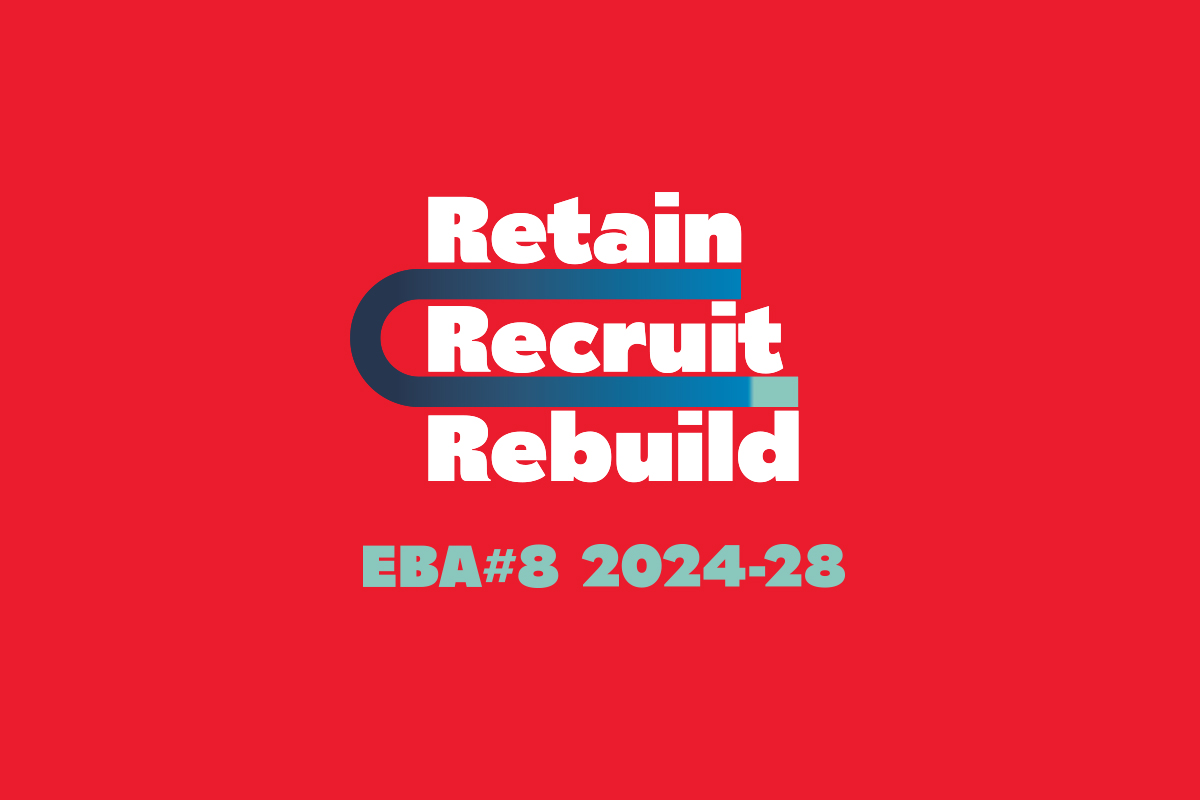
Nine months since the Federal Albanese Government was elected, and two years since the release of the aged care royal commission final report, we are seeing progress on wages, workload, skill mix and workforce reform.
Wages
The award rate for all private aged care nurses and personal care workers (both residential and home-care) will increase by 15 per cent from 30 June 2023.
The increase is the Fair Work Commission’s (FWC) first stage response, announced on 4 November 2022, to the ANMF’s national aged care work value case for a 25 per cent increase.
ANMF issued a private aged care member newsflash last month explaining that the Fair Work Commission’s decision does not mean a 15 per cent increase for members if they are already paid above award rates via an enterprise agreement. Once the award rate equals or exceeds the agreement rate then a carer or nurse must be paid a least the award base rate.
Most EBA rates for aged care nurses are more than 15 per cent above the current award rates. So, the increase to award rates will not result in any increase immediately for nurses. However, carers are, in almost all agreements less than 15 per cent above the current award rate.
However, ANMF wants all nurse and carer rates in agreements to rise.
The Federal Albanese Government made an election commitment to fully fund the increase and on-costs associated with the increase. This will occur via new AN-ACC classification funding.
Recent media reports are estimating aged care providers will receive approximately $1.9 billion to increase wages.
The looming battle is to get private aged care providers to pass on all of that taxpayer funding, in the form of higher wages – exactly the intended purpose.
The ANMF nationally is calling on the federal government to put strict rules in place which force providers to pass the money on, to be transparent with employees and unions and to consult about how the additional money is allocated. They are yet to respond.
Meanwhile, during recent enterprise bargaining negotiations ANMF (Vic Branch) has tried to include clauses that commit aged care providers to:
- being transparent about their wages funding allocation amount
- consulting with ANMF when they receive the funding
- passing on additional Federal Government work value funding as higher wages.
Most employers have refused.
ANMF (Vic Branch) has filed bargaining dispute applications in the Fair Work Commission involving Victorian private aged care employers, including Lifeview (four facilities), mecwacare (14 facilities) and Villa Maria Catholic Homes (13 facilities). The FWC conciliation is on 8 March.
We are scheduling discussions with a range of other providers who have already have agreements in place.
ANMF (Vic Branch) Secretary Lisa Fitzpatrick said ‘These providers are not alone in saying they will not commit to passing all work value funding on to employees.
‘It will be an unforgivable betrayal if private aged care providers receive nearly $2 billion to pay higher wages to nurses and carers and fail to pass on every single cent to their staff.’
Over the past 30 years Federal governments have given private aged care providers almost $2.5 billion specifically to increase wages: the Keating Government provided $50 million in 1996; the Howard government provided $221.1 million in 2002 and $877 million in 2004 and the Gillard government provided $1.2 billion in 2013.
In their final report, aged care commissioners Tony Pagone and Lynelle Briggs noted that previous federal government attempts to fund increases had not resulted in increased wages.
In evidence to the aged care royal commission in October 2019, ANMF (Vic Branch) Assistant Secretary Paul Gilbert said: ‘The Commonwealth Government has increased taxpayer subsidies to aged care to improve wages, and not once did that deliver a dollar in improved wages.’
What were the aged care royal commission’s wage recommendations?
- Recommendation 84 –Unions should collaborate with the Federal Government and employers to bring a work value case and equal remuneration application to the Fair Work Commission.
- Recommendation 85 – Make wage increases an objective of the aged care funding system taking into account the need to deliver high quality care and the need to attract staff with the appropriate stills.
Staffing levels, workloads and care minutes
The Federal Government introduced care minute targets for residents in October 2022.
The first stage of the sector-wide target of 200 minutes per resident includes 40 minutes by a registered nurse. The 200 minutes also include enrolled nurses and personal care workers.
The 200 care minutes will become mandatory for aged care providers from 1 October 2023. This will increase, in line with the royal commission recommendation number 86, to 215 minutes from 1 October 2024.
Aged care providers will receive an extra $5.4 billion over four years to increase the amount of care minutes that residents receive and to recruit and retain enough registered and enrolled nurses and carers to meet the new care minute requirements.
This funding started flowing in October 2022 to help residential aged care providers build their workforce. Unfortunately ANMF is still seeing aged care providers cut nurses and carers shifts and hours.
In addition to care minutes all private residential aged care facilities must have a registered nurse on site and on duty 24 hours a day, seven days a week from 1 July 2023.
24/7 RN staffing already occurs in 85 per cent of Victorian private aged care facilities as a requirement in enterprise agreements negotiated by ANMF (Vic Branch). This is not the case in states such as NSW and QLD where it is a major and welcome reform.
What were the aged care royal commission staffing recommendations?
- Recommendation 86 – From 1 July 2022, the minimum staff time standard should require providers to engage registered nurses, enrolled nurses, and personal care workers for at least 200 minutes per resident per day for the average resident, with at least 40 minutes of that staff time provided by a registered nurse. From 1 July 2024 the minimum care time staff provision should be 215 minutes per average resident, with 44 minutes provided by a registered nurse. A registered nurse should be on-site at nursing homes at all times.
- Recommendation 77 – Registration for personal care workers, including a mandatory minimum qualification of a Certificate III, ongoing training requirements and a code of conduct.
- Recommendation 75 – The government should establish an Aged Care Workforce Planning Division to prepare an interim workforce strategy and planning framework for 2022–25 and a 10-year strategy for 2025–35.
Funding for the residential aged care sector in 2020-21 was $14.1 billion up from $13.4 billion in the previous year.

It is a year since ANMF members held community ‘fix aged care’ rallies on the first anniversary of the release of the aged care royal commission final report and recommendations. Photo Penny Stephens




